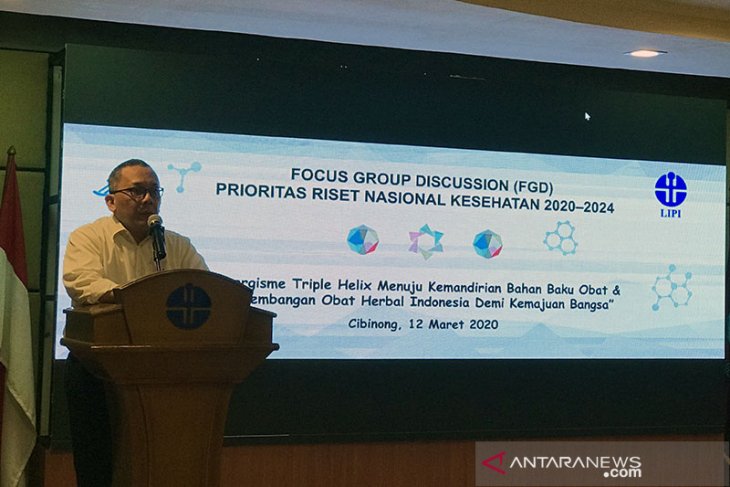Live Streaming
Program Highlight
Company Profile
LIPI Envisages Business Models Changing in New Normal amid COVID-19
Written by Ani Hasanah
Chairman of the Indonesian Institute of Sciences (LIPI), Laksamana Tri Handoko during a Forum Group Discussion on National Research Priority of Health and Drugs 2020-2024 in West Java, Thursday (12/3/2020). ANTARA
The Indonesian Institute of Sciences (LIPI) projects shifts and new-fangled business models in the new normal, so as to facilitate people in conducting their businesses whilst settling to coexist with the novel coronavirus disease (COVID-19).
"We also ponder over how we can support changes and business models," Laksana Tri Handoko, the institute’s chairman, stated during a webinar titled “Indonesia's Technology and Innovation in the face of COVID-19” in Jakarta, Tuesday.
Micro, small, and medium enterprises (MSMEs) had become one of the sectors bearing the brunt of the COVID-19 pandemic. In order to sustain in such a challenging scenario, the MSME business models should capitalize on the apt technologies, either existing ones or those that can be developed further.
The pertinent technology can take shape in the form of packaging of local food products and diversification of existing products.
During the enactment of Large-Scale Social Restrictions (PSBB), customers are unable to eat at restaurants or cafes. MSME business makers that earlier sold their food only at cafes and restaurants can migrate to package them to be sold in to-go packaging, such as cans, for being shipped to areas across Indonesia.
Handoko stated that the spread of COVID-19 had resulted in the most popular restaurants shutting down, and even if they are open, they are receiving significantly fewer customers.
Packaging food and diversifying products can unveil market opportunities and can potentially boost revenue for MSME businesses.
For instance, the meat-based dish empal gentong popular in Cirebon, West Java, can be packaged in cans and sold in the nationwide market.
In terms of product diversification, diners that initially only sold riced corn can start producing corn- or cassava-based noodles. The products can then be packaged properly and sent to different areas in the country and sold within networks. (ANTARA)



